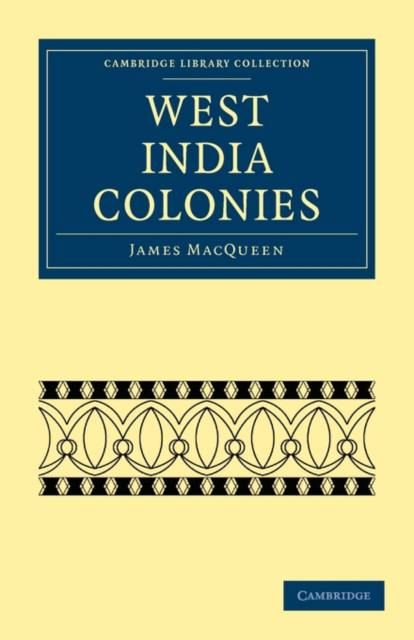
- Afhalen na 1 uur in een winkel met voorraad
- Gratis thuislevering in België vanaf € 30
- Ruim aanbod met 7 miljoen producten
- Afhalen na 1 uur in een winkel met voorraad
- Gratis thuislevering in België vanaf € 30
- Ruim aanbod met 7 miljoen producten
Zoeken
Omschrijving
James MacQueen (1778-1870) was one of the most outspoken critics of the British anti-slavery campaign in the 1820s and 1830s. A former manager of a sugar plantation in the Caribbean, he was editor of the Glasgow Courier, a paper that favoured West Indian merchant interests and opposed rights for slaves. First published in 1824, this book is a direct attack on contemporary anti-slavery campaigners, such as William Wilberforce and Thomas Clarkson, whom MacQueen holds responsible for 'the dreadful misrepresentations scattered abroad' about West India colonies and the planters. MacQueen, who insists on calling himself an enemy of slavery 'in the abstract', argues that abolition in the colonies would lead to insurrections, bringing chaos and barbarism to these territories. This, in turn, would lead to the loss of the British colonies. This volume remains an essential document in the context of post-colonial studies.
Specificaties
Betrokkenen
- Auteur(s):
- Uitgeverij:
Inhoud
- Aantal bladzijden:
- 466
- Taal:
- Engels
- Reeks:
Eigenschappen
- Productcode (EAN):
- 9781108020329
- Verschijningsdatum:
- 23/09/2010
- Uitvoering:
- Paperback
- Formaat:
- Trade paperback (VS)
- Afmetingen:
- 140 mm x 216 mm
- Gewicht:
- 585 g

Alleen bij Standaard Boekhandel
+ 180 punten op je klantenkaart van Standaard Boekhandel
Beoordelingen
We publiceren alleen reviews die voldoen aan de voorwaarden voor reviews. Bekijk onze voorwaarden voor reviews.











